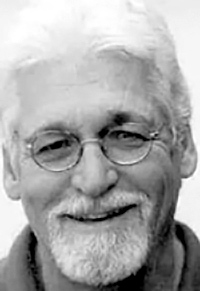- Home>
- News & Stories>
- Ingredients of a Best Seller: Faith, Luck and Hard Work
Ingredients of a Best Seller: Faith, Luck and Hard Work
Ingredients of a Best Seller: Faith, Luck and Hard Work
By Edward Wyatt, The New York TimesFriends say Jeffrey Marx has always seemed oddly blessed. In 1985 Mr. Marx was 22 and in his first newspaper job, assigned to report on the coal business for The Herald-Leader in Lexington, Ky., when he began hearing about strange goings-on in the University of Kentucky basketball program. His articles, which exposed cash payoffs to Kentucky players, won the Pulitzer Prize for investigative reporting in 1986 for him and a colleague.
In 1997 he plunked down $1 for a chance to heave a basketball down a makeshift court on Pennsylvania Avenue in Washington toward a basket 69 feet away. Make the shot, win $25,000, he was told. He made the shot.
Last year, after being turned down by a half-dozen publishers, Mr. Marx self-published a book about a former professional football player turned minister who teaches high school football players how to be men of substance. In the week that ended on Saturday, the book, ''Season of Life,'' was ranked at No. 10 on the New York Times nonfiction best-seller list. The list will appear in The Times Book Review on Sept. 19.
''I always had absolute faith and belief in this story,'' Mr. Marx said in an interview on Wednesday.
Not until Mr. Marx had sold 14,000 copies of ''Season of Life'' out of his living room and his car did Simon & Schuster have similar faith. In April the publisher agreed to produce a new edition of the book, which it released on Sept. 1, three days after Parade magazine featured an adaptation of the story on its cover.
The book tells the story of Joe Ehrmann, an All-American defensive lineman at Syracuse University and a first-round draft choice of the Baltimore Colts, who played for 10 seasons in the National Football League. Now the pastor of the 4,000-member Grace Fellowship Church in Timonium, Md., Mr. Ehrmann volunteers as an assistant football coach at the Gilman School, a private boys school in Baltimore.

His message to the football team is repeated over and over, Mr. Marx writes in the book, ''with the familiarity of a mantra, the commitment of an oath, the enthusiasm of a pep rally'': the job of the coaches is to love their players, and that of the players is to love one another. The lesson, at Gilman and in his outreach program, called ''Building Men for Others,'' is that a meaningful life focuses on a cause beyond itself.
Mr. Marx has known Mr. Ehrmann for a long time. From the time he was 11 until he was a junior in college, Mr. Marx worked as a ball boy for the Baltimore Colts. The stint corresponded with the Colts' final years in Baltimore, and in 2001, when Memorial Stadium was to be torn down, Mr. Marx proposed writing an article for The Baltimore Sun about a final walk through the venerable stadium.
''I decided then that the story was not just about the stadium,'' Mr. Marx said. So he set out to contact each of the 212 men who had played for the Colts during his years as a ball boy, to document where their lives had led.
The 85th player he contacted was Mr. Ehrmann, and their conversation lasted almost an hour, Mr. Marx said. ''He played a huge role in my childhood,'' Mr. Marx recalled, and as he learned more about what Mr. Ehrmann was doing now, he decided to follow the Gilman team through an entire season.
An experienced reporter and freelance journalist, Mr. Marx had written a previous book, ''Inside Track,'' with the star sprinter Carl Lewis, published in 1990 by Simon & Schuster. But when he contacted his former editor there with a proposal for the book about Gilman and Joe Ehrmann, Simon & Schuster was not interested.
''They certainly weren't alone,'' Mr. Marx said. ''Everyone else passed, too. I had a couple of nibbles but no bites, and ultimately I decided I didn't want to wait any longer.''
In 2000 Mr. Marx had self-published another book, ''It Gets Dark Sometimes,'' an account of his sister's quest for a liver transplant and the work that led him to form the Wendy Marx Foundation for Organ Donor Awareness. He did the same with ''Season of Life,'' then toted copies to a Barnes & Noble store in Towson, Md., and eventually to three other stores in the area.
Newspaper articles led to speaking engagements at prisons, churches, schools, even with the Dallas Cowboys, all of which created more sales. On Oct. 28, 2003, two things happened that Mr. Marx says changed everything: HBO's ''Real Sports With Bryant Gumbel'' featured a segment about Mr. Ehrmann and the book, and his sister died.
In April Mr. Marx again contacted Robert Bender, the editor at Simon & Schuster who had previously passed on the book. This time, they struck a deal.